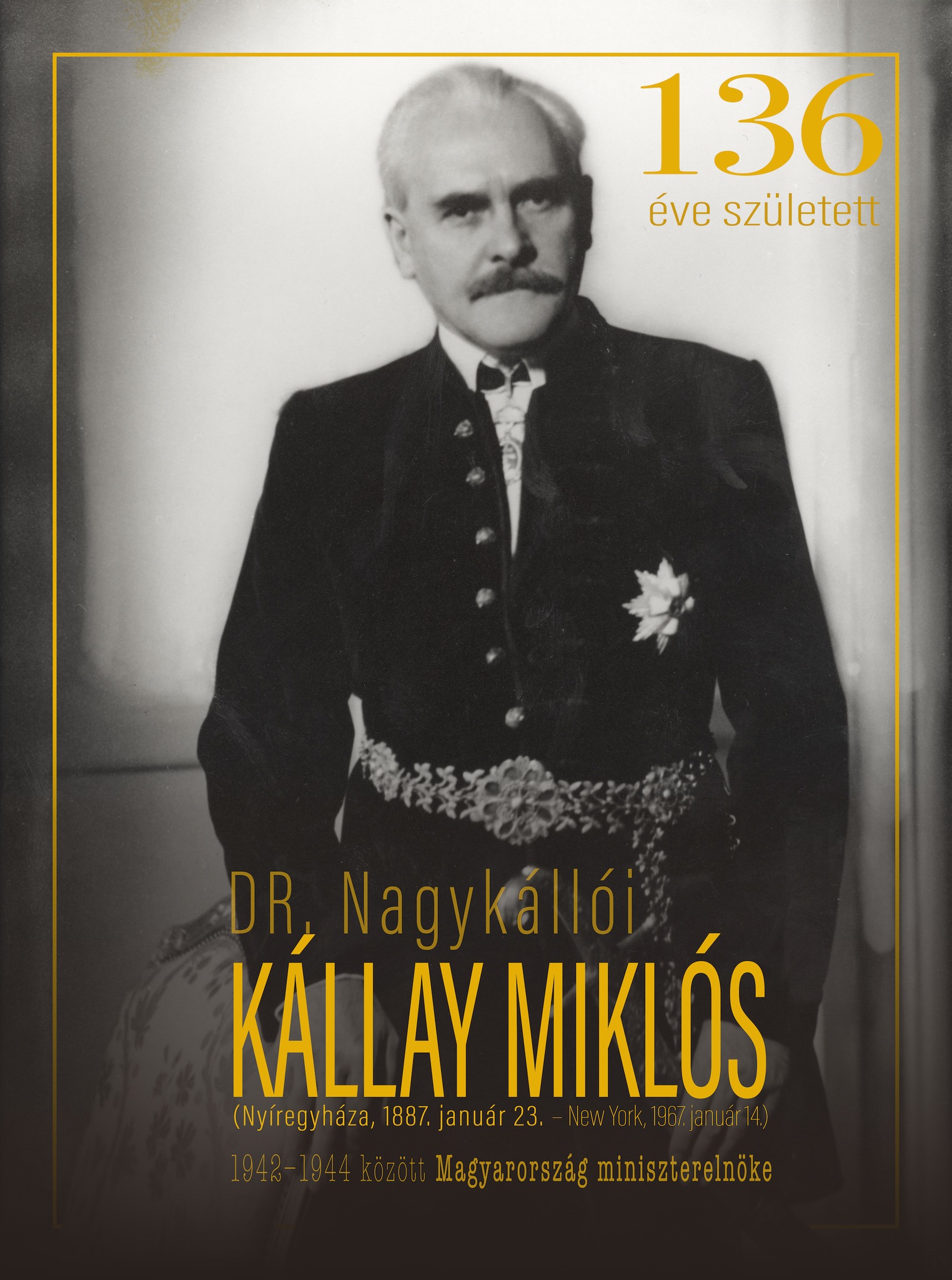"He was the only one who could fill this role and who tried to turn back the cruel wheel of fate, his ancestors defended the independence of the nation, its people and its dignity for a thousand years."
Dr Miklós Kállay of Nagykálló, Hungarian politician, Minister of Agriculture (1932-1935), Prime Minister of Hungary from 1942-1944, who also held the position of Foreign Minister until 1943 was born on 23 January 1887.
Kállay, who kept his country's interests in mind and did not want to serve Nazi Germany, fled from the Sándor Palace on the morning of 20 March 1944, the day after the German occupation, to Horthy's residence in a tunnel to escape the SS troops arriving to arrest him, and then sought refuge at the Turkish embassy.
When Ferenc Szálasi, who had come to power in October, demanded his extradition, Kállay left the Turkish embassy and voluntarily surrendered to the Arrow Cross. He was deported to Mauthausen and from there to Dachau. On 4 May 1945, he was released from captivity under adventurous circumstances.
Since 2002, a memorial plaque in the lobby of the European Youth Centre in the former Turkish Embassy in Budapest commemorates the fact that Miklós Kállay found refuge in the Embassy of the Republic of Turkey between 19 March and 19 November 1944.

On the 136th anniversary of the birth of Miklós Kállay, we commemorate the tragic fate of the Hungarian Prime Minister with an excerpt from the thoughts of Béla Varga, President of the Hungarian Commission:
"Miklós Kállay went through all the schools of Hungarian statesmen, from a small public office to the prime ministership, for his Hungarian homeland and for the Hungarian people.
His life is more than a heroic poem, because Miklós Kállay himself was one of the greatest heroes of his time. Miklós Kállay took the greatest risk of his life. In 1942, in the midst of a hopeless war, in the darkness of a hopeless future, he sacrificed his whole life when he accepted the premiership of the country, in accordance with the country's constitution, traditions and Christian humanism.
He was the only one who could fill this role and who tried to turn back the cruel wheel of fate, whose ancestors had defended the independence of the nation, its people and its honour for a thousand years. Miklós Kállay's programme was complete: to save every Hungarian life and to attempt the impossible, to prepare the peace for which his people, suffering in the ordeal, yearned. He was well aware of the danger that surrounded him from the moment he assumed the premiership.
THE WORLD DOES NOT REALLY KNOW, THOSE WHO KNEW, DIED LONG AGO, OR THOSE WHO ARE STILL ALIVE MAY HAVE FORGOTTEN THE FIRST HEROIC STEPS OF MIKLÓS KÁLLAY
on the road that ended in Mauthausen and Dachau.
When he appeared to introduce himself at a meeting of the parliamentary group of the then leading governing party, he was applauded by a few old friends, but was met with boos and jeers from the vast majority. Miklós Kállay, however, did not flinch. He continued his work with faith, conviction and sacrificial patriotism, and within a year he had reversed the mood.
IT WAS THE INTERVENTION OF EXTERNAL FORCES, MUCH GREATER THAN THOSE OF HUNGARY THAT STOPPED HIM.
On 19 March 1944, he was forced to abandon the work which he believed to be the best service to God and his people.
Miklós Kállay was a hero not only because he courageously accepted the call given to him by Providence, but also because he was a great humanist, a true Christian in the sense that he felt himself responsible, without distinction, for all Hungarian lives."
(Source: Katolikus Szemle (1967 Rome), 19. 1. no. 75)
Our researcher Arthur Köő drew our attention to today's anniversary.